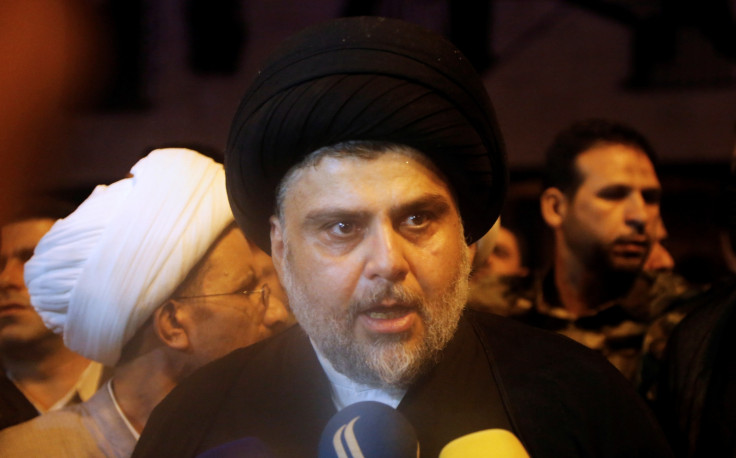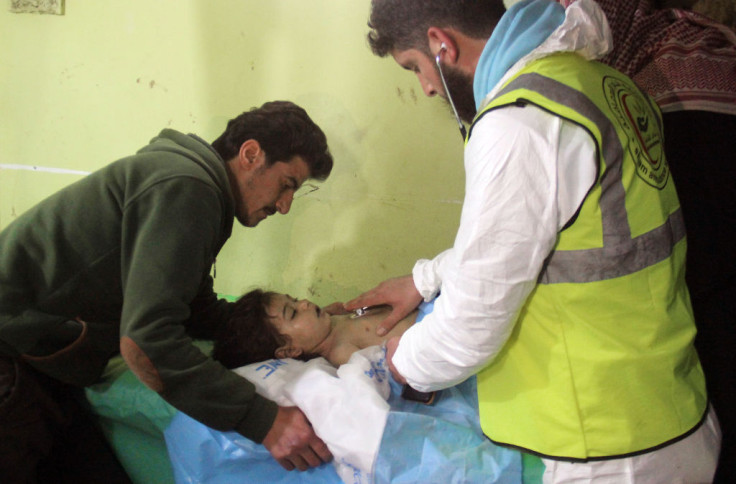Shia Muslim unity cracks as Iraq's Muqtada al-Sadr calls on Assad to resign after chemical attack
President Assad denies involvement in the attack that saw the US launch a retaliatory missile strike.
Iraqi Shi'ite leader Muqtada al-Sadr has become the first senior figure in the minority sect to urge Syrian President Bashar al-Assad to resign, after a chemical attack that killed more than 80 people.
Powerful cleric Sadr said Assad should "take a historic heroic decision" and step down from the presidency after the bombing in Idlib province and he reiterated his point comparing Assad to Muammar Gaddafi.
The Shi'ite political leader has a huge following in neighbouring Iraq, but does not hold any political office.
He controls Saraya al-Salam, a Shi'ite militia, and founded the Mahdi Army, which fought against the US occupation.
In his latest statement Sadr issued on Wednesday (12 April) he said: "I have urged him to step down to preserve the reputation of the Mumanaa and to escape a Gaddafi fate".
The word Mumanaa, in this instance, refers to a so-called anti-Western "resistance front" that includes Lebanon's Hizballah, Iran and Syria.
#Iraqi cleric Moqtada al-Sadr warned Bashar Assad that he risked suffering same fate as slain #Libyan leader Gadhafi if he did not step down
— Mete SohtaoÄŸlu (@metesohtaoglu) April 11, 2017
Despite Shia support for Assad from Iran and the Iranian backed militants Hezbollah, Sadr asked Assad, in a statement quoted by Reuters, to spare Syria the "woes of war and terrorism".
"I think it would be fair for President Bashar al-Assad to offer his resignation and step down in love for Syria, to spare it the woes of war and terrorism ... and take a historic, heroic decision before it is too late," he said.
The 43-year-old did not condemn the Syrian president for allegedly sanctioning the use of the nerve agent sarin against his people, which Western nations, including the US and UK, claim was dropped on the rebel-held town of Khan Sheikhoun on Thursday (6 April).
Assad denies dropping any chemical weapons at any stage in the six-year-long civil war, and Russia blamed the rebels themselves for the attack, but US President Donald Trump still took unilateral military action in response — aiming 59 Tomahawk missiles at the al-Shayrat airbase, in the western city of Homs.

Sadr did however continue by warning Assad that further US airstrikes would "drag the region to war" and may lead to the "the expansion of Daesh," using the Arabic name for Isis.
In Iraq, many of the Shia brigades fighting under the banner of the US-backed Popular Mobilization Units have pledged allegiance with Sadr, and have links to the Mahdi Army.
Saraya al-Salam was re-mobilised to fight against the extremists three years ago as the militant Sunni group came within just 40 miles of the Iraqi capital, Baghdad.

Iraqi Prime Minister Haider al-Abadi has condemned the chemical attack and called for an international investigation into the incident, but stopped short of naming the Syrian dictator as responsible.
The attack has sparked international condemnation with US Secretary of State Rex Tillerson telling reporters at the G7 summit in Lucca, Italy on Tuesday (11 April) that Russia had "aligned themselves with an unreliable partner in Bashar al-Assad".
© Copyright IBTimes 2025. All rights reserved.






















